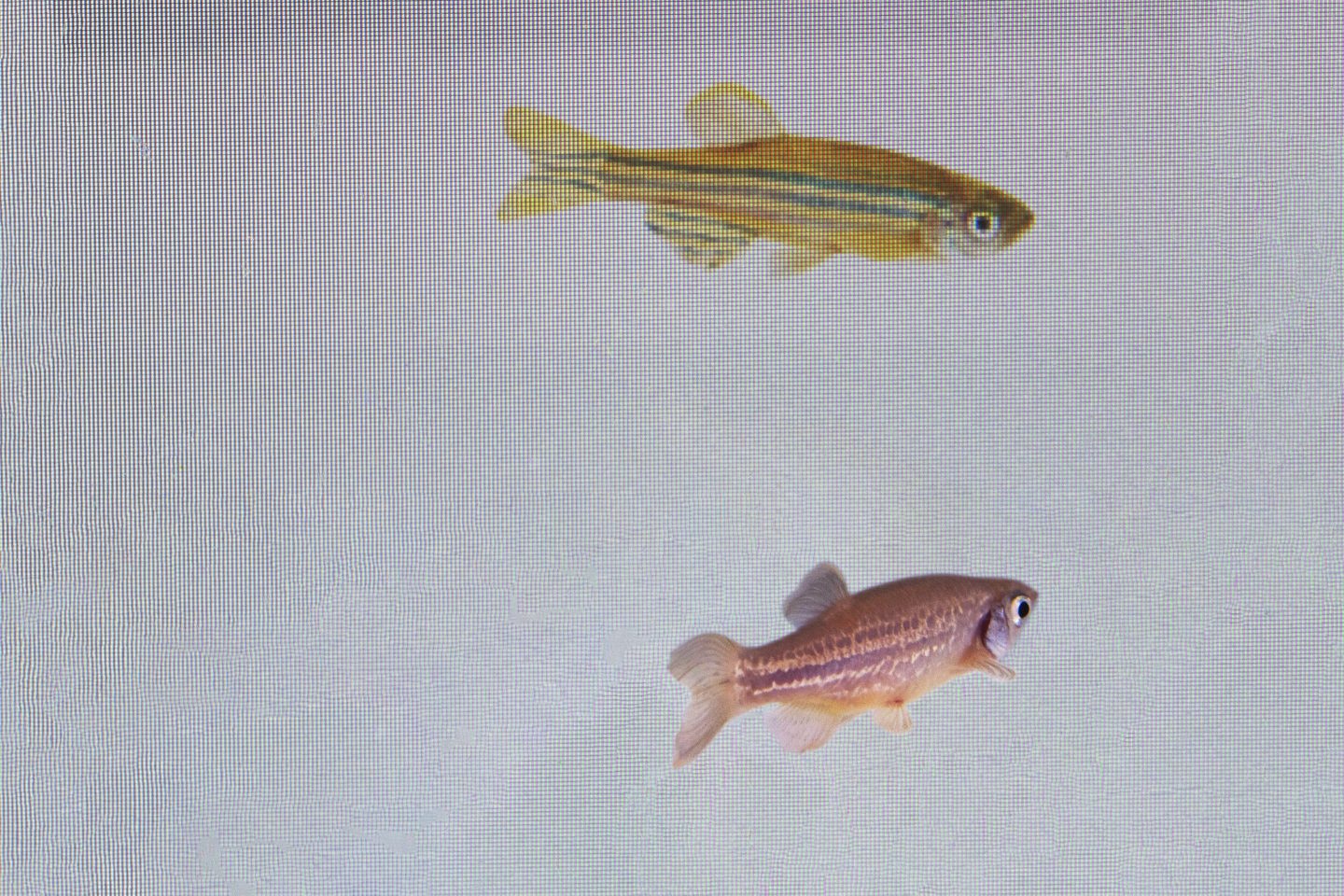Our capacity to care about others may have very, very ancient origins, a new study suggests.
It might have been deep-rooted in prehistoric animals that lived millions of years ago, before fish and mammals like us diverged on the tree of life, according to researchers who published their study Thursday in the journal Science.
“Some of the mechanisms that underlie our ability to experience fear, or fall in and out of love, are clearly very ancient pathways,” said Hans Hofmann, an evolutionary neuroscientist at the University of Texas at Austin, who was not involved in the research.
Scientists are usually reluctant to attribute humanlike feelings to animals. But it’s generally accepted that many animals have moods, including fish.
The new study shows that fish can detect fear in other fish, and then become afraid too – and that this ability is regulated by oxytocin, the same brain chemical that underlies the capacity for empathy in humans.
The researchers demonstrated this by deleting genes linked to producing and absorbing oxytocin in the brains of zebrafish, a small tropical fish often used for research. Those fish were then essentially antisocial – they failed to detect or change their behavior when other fish were anxious.
But when some of the altered fish received oxytocin injections, their ability to sense and mirror the feelings of other fish was restored — what scientists call “emotional contagion.”
“They respond to other individuals being frightened. In that regard, they behave just like us,” said University of Calgary neuroscientist Ibukun Akinrinade, a co-author of the study.
The study also showed that zebrafish will pay more attention to fish that have previously been stressed out – a behavior the researchers likened to consoling them.
Previous research has shown that oxytocin plays a similar role in transmitting fear in mice.
The new research illustrates “the ancestral role” of oxytocin in transmitting emotion, said Rui Oliveira, a behavioral biologist at Portugal’s Gulbenkian Institute of Science and a study co-author.
This brain processing “may have already been in place around 450 million years ago, when you and me and these little fish last had a common ancestor,” explained Hofmann.
Oxytocin is sometimes thought of as a “love” hormone, but Hofmann said it’s actually more like “a thermostat that determines what is socially salient in a particular situation – activating neural circuits that may make you run from danger, or engage in courtship behavior.”
That could be fundamental to the survival of many animals, especially those who live in groups, said Stony Brook University ecologist Carl Safina, who was not involved in the study.
“The most basic form of empathy is contagious fear – that’s a very valuable thing to have to stay alive, if any member of your group spots a predator or some other danger.”
___
The Associated Press Health and Science Department receives support from the Howard Hughes Medical Institute’s Science and Educational Media Group. The AP is solely responsible for all content.












